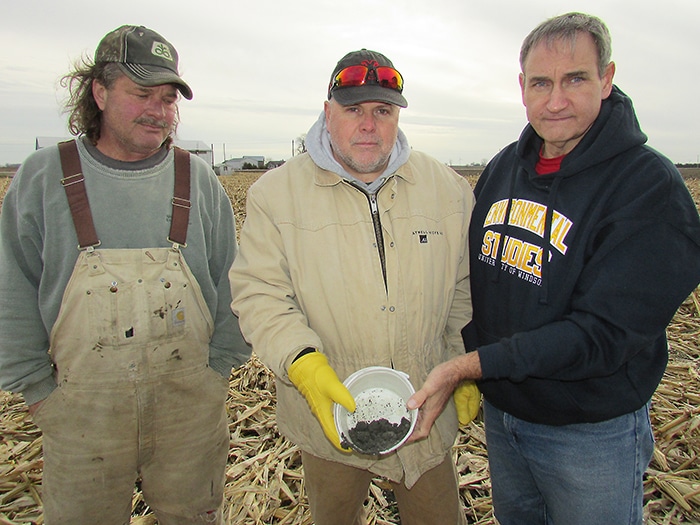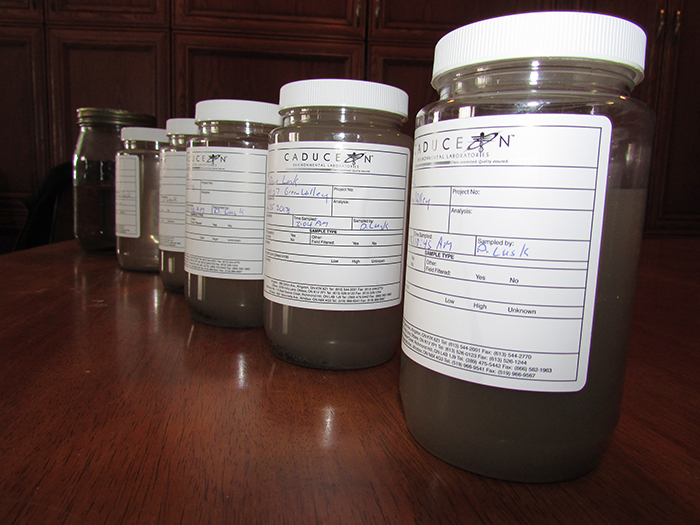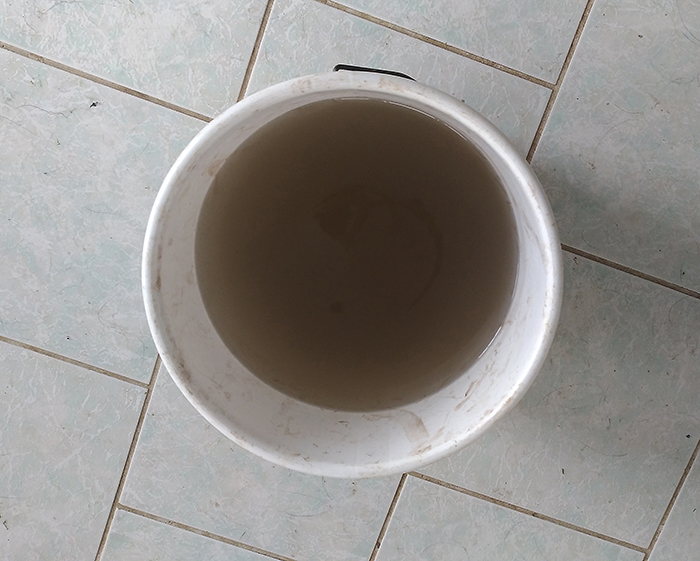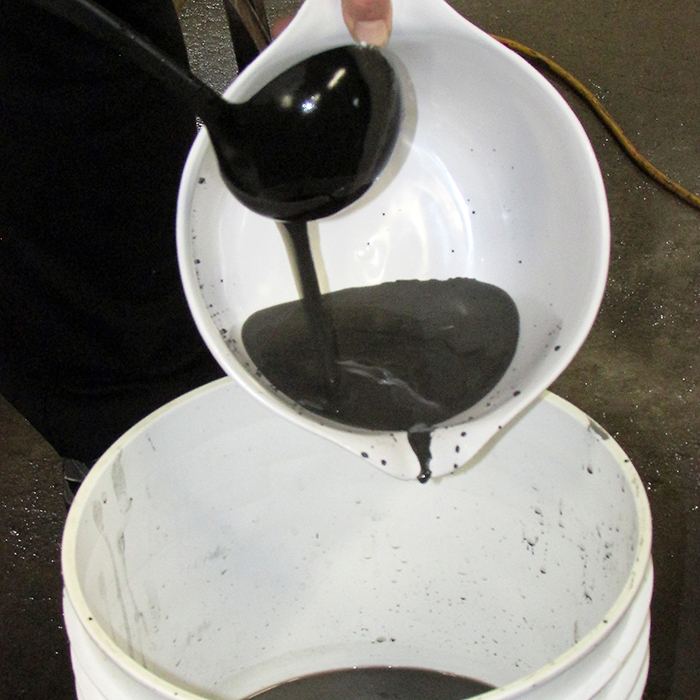
By Jenna Cocullo, Local Journalism Initiative
The provincial government is getting proactive more than a year after it made an announcement to test the water quality of privately owned wells in North Kent, but one affected resident wants to see more community involvement.
On Thursday, Lambton-Kent-Middlesex MPP Monte McNaughton announced the government established a panel of five individual experts, appointed by the Minister of Health, to lead a water well investigation following long-time concerns from residents that their water is contaminated with Kettle Point black shale.
“I feel so great for those families who’ve had questions for many years. I remember hearing in 2012 the concerns families had regarding their well water. I feel quite proud that we listened to the community and kept the promise we made in 2018,” McNaughton told The Chatham Voice.
The health hazard investigation was previously announced in July 2019, but since then nothing had been done, according to North Kent resident Kevin Jakubec.
Jakubec was a member of Water Wells First, a group of citizens concerned about water contamination that the group alleges came from the North Kent Wind Farm which potentially led to Kettle Point black shale appearing into their water supply.
One of Jakubec’s neighbours had gas and black shale “shooting up” from his water well, he said.
Pattern Energy Group, Samsung Renewable Energy Inc., who constructed the North Kent Wind 1 and 2 projects with the support of the then-Liberal Ontario government, have said it had no effect on the water wells.
According to health hazard protocol, the community that’s affected is a stakeholder, and as a stakeholder should be consulted, which Jakubec said had not happened while forming the panel.
“And there has been none of that done. That never happened from July 19, 2019 to right now,” he said. “They have to get involvement from the community in order to understand the extent of the problem.”

Jakubec was concerned that a panel was started before the government even understood the extent of the problem or what kind of contaminants they could be dealing with.
“They haven’t even sampled one teaspoon yet.”
McNaughton said the COVID-19 pandemic is what postponed the work of the panel plus delays with a request for proposal for a contractor to do the testing.
Jakubec isn’t buying it.
“This investigation was supposed to get going way before COVID. COVID should have no bearing in any significant way on the health hazard investigation. And I say that because the investigation has been very poorly handled by the Ford government since it was announced,” Jakubec said.
McNaughton said that he is confident the panel of five experts will give the public answers they can trust, and that the government will be reaching out to residents as soon as possible so they can be in the field by the end of the month.
Jakubec said for the moment his water is fine but he is hoping the research will investigate how much microscopic black shale could potentially have contaminated his supply.
“And a big concern is how does microscopic black shell clear the kidneys, that’s something that should be addressed if you follow the protocol. They have to consider all the different exposures and that’s something I’m going to be looking at very seriously.”

The panel will sample up to 189 private wells that were part of the baseline water tests completed in 2018, before a nearby wind farm was built
Englobe Corporation was selected to execute well water and sediment sample collection and testing. The panel consists of two toxicologists, an environmentalist health scientist, an epidemiologist who specializes in exposure measurement, and local geologist Dr. Keith Benn.
The study costs more than $1 million, according to McNaughton.
“How much of that was spent on the consultants and what did the public get for those tax dollars is a really huge question. We have no idea because we have no feedback from minister McNaughton. There’s no community involvement with either of those offices on an ongoing basis,” Jakubec said.
He added that to this date he had not received an e-mail back inquiring about the status of the health hazard investigation and was surprised when The Voice informed him about it.
The term of the expert panel has been extended by one year, because of COVID-19, and will end on Dec. 31, 2021.
McNaughton said he does not want to speculate what the results of the study will be and did not specify what would happen to the wind farm or water wells should there be a proven connection between the contamination and the turbines.
Jakubec remains sceptical.
“I’m reserved in my opinion until I see the kind of work that they’ve done and how they are going to follow the health hazard investigation protocol because it’s not off to a good start. So I’m leery as to where this is going to go,” Jakubec said.







